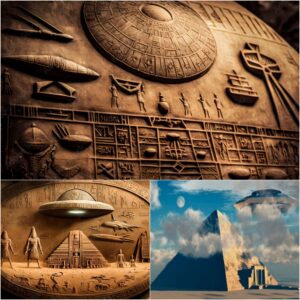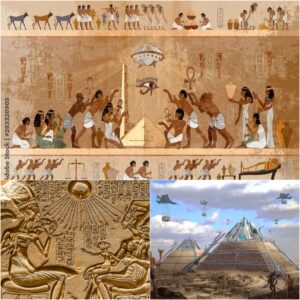The emergence of a captivating artifact adorned with intricate astronomical motifs provides a remarkable glimpse into the cosmic wisdom of the ancient Mayan civilization. Meticulously carved into stone, this archaeological find serves as a celestial time capsule, offering profound insights into the advanced understanding of the cosmos by the Mayan people and their harmonious connection with the celestial realms.

Discovery of the Astronomical Artifact: In a recent archaeological discovery, researchers have unearthed a mesmerizing artifact adorned with astronomical motifs from the heart of the Mayan civilization. Carved meticulously into stone, this relic promises to unveil the celestial mysteries that fascinated the minds of the Mayan people.
Intricate Celestial Motifs: The artifact showcases detailed depictions of celestial bodies, constellations, and cosmological events. Mayan astronomers, renowned for their advanced understanding of the night sky, left behind a visual legacy that reveals not only their keen observational skills but also their deep spiritual connection with the cosmos.

Cultural Significance of Mayan Astronomy: The Mayans, inhabitants of Mesoamerica, developed a sophisticated system of astronomy that played a pivotal role in their culture and daily lives. The positioning of celestial bodies, especially the sun and the moon, was intricately woven into their religious practices, agriculture, and societal calendars.
Decoding Mayan Hieroglyphs: The artifact is adorned with Mayan hieroglyphs, a written language that scholars continue to decipher. These inscriptions are expected to provide valuable insights into the Mayan understanding of specific celestial events, cycles, and their intricate calendar systems.
Timekeeping and Rituals: The Mayans were meticulous timekeepers, and their calendars were intricately linked to celestial phenomena. The artifact may hold clues about significant astronomical events that served as markers for religious ceremonies, agricultural activities, and societal events, highlighting the seamless integration of the celestial and earthly realms in Mayan culture.
The Mayan Worldview: The Mayans viewed the cosmos as a living entity, and their astronomical knowledge was deeply intertwined with their spiritual beliefs. The artifact, with its celestial motifs, serves as a visual representation of the Mayan worldview, where the movements of the stars and planets held profound meaning and influence.
Preserving Cultural Heritage: Archaeologists and historians are collaborating to ensure the artifact’s preservation and comprehensive study. Modern technology, including 3D scanning and imaging, is being employed to capture the intricate details of the stone carvings, ensuring that future generations can explore and appreciate this celestial masterpiece.
Global Interest and Collaboration: The unveiling of the Mayan astronomical artifact has sparked global interest, fostering collaboration among international scholars, archaeologists, and historians. The collective effort to understand and contextualize the artifact emphasizes its significance as a shared cultural heritage transcending geographical boundaries.
The discovery of the Mayan artifact adorned with astronomical motifs on stone is a testament to the advanced knowledge and spiritual depth of the Mayan civilization. As scholars delve into the celestial intricacies carved into the artifact, a new chapter unfolds in our understanding of the Mayan people’s harmonious relationship with the cosmos. This cosmic tapestry serves as a timeless link between the modern world and the celestial wisdom of an ancient civilization.





